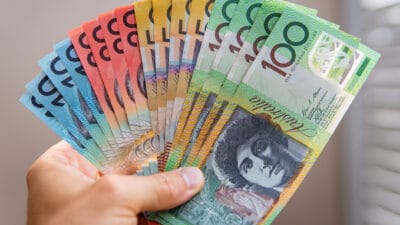The current coronavirus-triggered market meltdown has seen many ASX shares fall from all-time highs.
The contagion of fear has taken hold in the markets as the COVID-19 virus spreads in the street. But while many are fleeing the ASX, the current bear market provides the opportunity to buy quality shares at very decent prices.
With that in mind, here we take a look at three ASX healthcare shares we're eying following the decline.
PolyNovo Ltd (ASX: PNV)
The PolyNovo share price has more than halved in value since its February highs of $3.28 and is currently trading at $1.54.
PolyNovo produces NovoSorb, a range of bio-resorbable polymers that can be produced in many formats including film, fibre, foam, and coatings. The company's premier product, NovoSorb BTM, is a dermal scaffold for the regeneration of the dermis when lost through extensive surgery or burns.
Directors of PolyNovo have taken advantage of the current market meltdown to top up their holdings in the company, with four directors purchasing an aggregate of more than 800,000 shares in the company this month.
In PolyNovo's recent half-year results, the company reported a 129% increase in revenue from sales of its NovoSorb BTM product, which reached $8.57 million. Strong sales performance was reported in the US with growing account penetration.
In December, the product received CE Mark approval allowing for full Western European market entry. Initial target markets are the UK, Ireland, Germany, Austria, and Switzerland, with surgeries and sales already occurring in the region. Further European Union expansion is planned for the second half of FY20. Approvals are in process in South Korea, Taiwan, Mexico, Kuwait, and Sri Lanka.
PolyNovo's product pipeline
PolyNovo is building a factory in Port Melbourne to produce hernia products utilising the NovoSorb technology. The product will be used for doing abdominal wall repairs with US market entry scheduled for June 2021. According to PolyNovo, the hernia market is worth some $2 billion and is growing at over 7% a year. PolyNovo's product will repair the hernia and then dissolve away, avoiding issues associated with permanent meshes.
This week, PolyNovo announced the completion of a feasibility study examining the safety and effectiveness of NovoSorb BTM in treating full-thickness burns. Results will be provided to the US Federal Drug Administration (FDA) in April after which they can be publicly released. Once the FDA has reviewed the results, PolyNovo expects to receive approval to conduct a larger pivotal study. The pivotal study will support premarket approval for a full-thickness burn indication in the US market.
PolyNovo is also working on a design for a breast product, with that market worth some $2.5 million to $3 billion. The company is also looking into generating drug-eluting polymers that can go under the skin and release controlled drug dosages. This could be a promising solution for treating chronic conditions where compliance of patients with medications regimes is an issue.
Cochlear Limited (ASX: COH)
A favour item of Australian investors, Cochlear has not escaped the coronavirus chaos unscathed, with shares down 37%. From a high of $254.40 in February, shares in the hearing implant maker are now trading at $159.86.
Cochlear is being impacted by the effect of coronavirus on hospitals, with many delaying surgeries to limit the risk of infection. Cochlear initially downgraded its guidance in February as it became clear coronavirus would impact the number of cochlear implant surgeries in Greater China.
This week, Cochlear withdrew its FY20 earnings guidance as coronavirus spread, with the virus expected to have a significant short-term negative impact on cochlear implant surgeries in the US and Western Europe. The high level of uncertainty around the extent and duration in the number of surgeries meant Cochlear was unable to provide an earnings outlook to the market.
Nonetheless, the company has seen a small but growing number of surgeries in China over the past few weeks as the country recovers from the worst of its outbreak. Cochlear's Chinese supplies have also resumed production of components.
The company is conservatively geared with headroom in existing debt facilities. It is reducing all non-essential spending and capital expenditure for the balance of the financial year in anticipation of the expected slowing in surgeries.
Despite the current short term headwinds, Cochlear continues to see the long-term opportunity to grow the hearing implant market. Many delayed surgeries are expected to progress once hospitals resume normal operations. The company may also get a tailwind from the recent product recall by competitor Sonova.
Avita Medical Ltd (ASX: AVH)
Avita Medical shares have fallen more than 50% from February highs. Just last month, shares in the regenerative medical company were trading as high as 86 cents. Now, they can be snapped up for 38 cents.
Avita specialises in spray-on skin therapy for dermal applications. Its leading product, the RECELL system, is currently used to treat burn wounds but is also being assessed for use in the treatment of vitiligo, traumatic wounds, scar reconstruction, and for dermatological aesthetic indications.
The system was approved for use in the United States in September 2018, and more than 50% of US burn surgeons and centres have now been trained on the system. Avita estimates the US market alone to represent an opportunity valued at $2 billion.
Earlier this month, Avita announced the enrollment of its first patient in a trial assessing use of the RECELL system in treating paediatric scald wounds. Building on the success the system has shown in treating adult patients, Avita is looking to potentially expand the use of the RECELL system to benefit paediatric patients. The system has the potential to both increase the speed of healing and reduce the need for skin grafts.
Studies are also expected to commence this year examining the use of the system in soft tissue repair and the treatment of vitiligo. Positive results in the use of the system for treating skin injuries opens the door to possible future aesthetic uses. According to the company, capturing just 5% of the skin rejuvenation market could represent a more than $500 million opportunity.
Avita is also planning new generation products which enhance ease of use and support the adoption of new indications. Generation 2 systems should support office-based procedures and target applications in cell and gene therapy.








